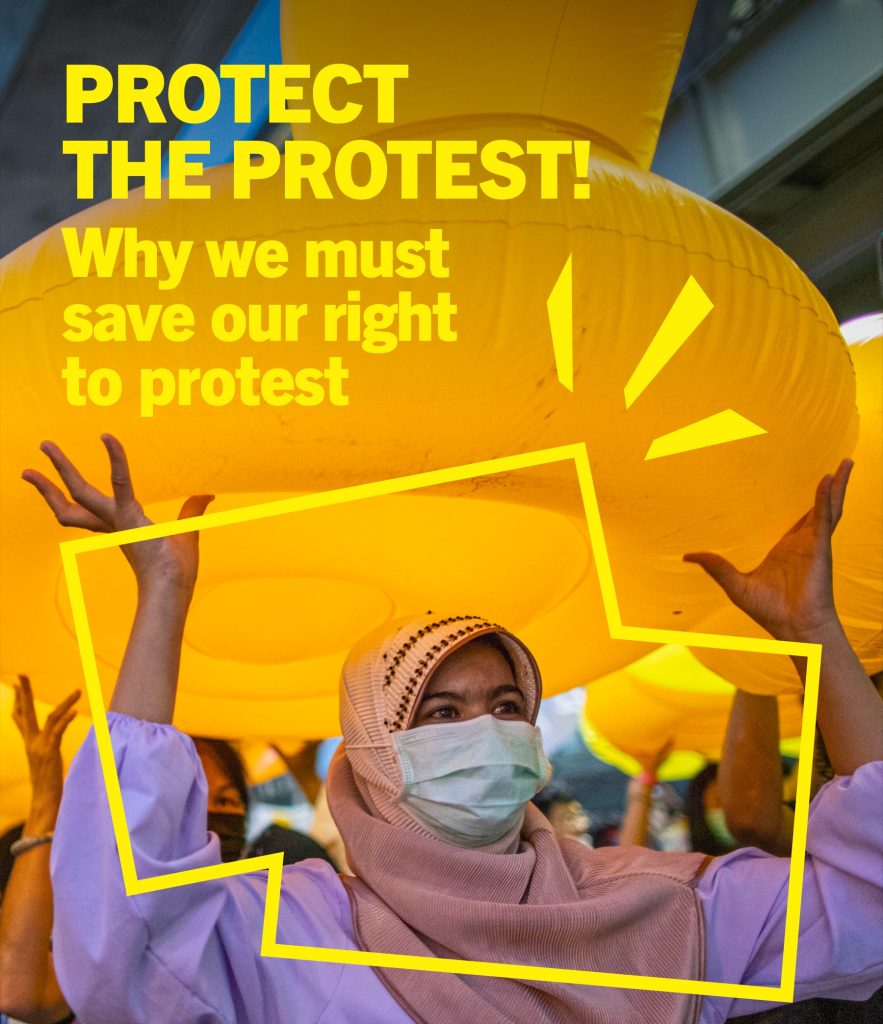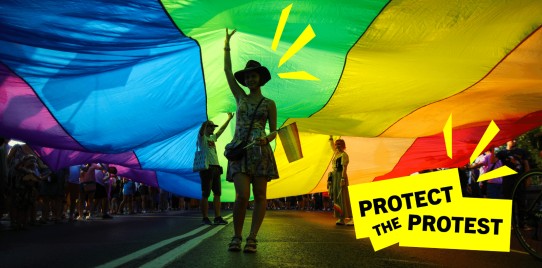Türkiye
Türkiye: People with disabilities neglected in humanitarian response to devastating earthquakes
As you will all be aware, southern Türkiye and northwest Syria were hit by devastating earthquakes in February. More than 48,000 people were killed and more than 100,000 were injured many of whom lost limbs and sustained other life-changing injuries. An estimated 3.3 million people have been displaced, with approximately 2.3 million people currently sheltering in tent camps and container settlements.
According to a joint Turkish government and United Nations assessment as many as 70 percent of injured earthquake survivors are expected to have a disability. In a shocking report, published by Amnesty International last Thursday 27 April it was revealed that people with disabilities living in displacement camps after the earthquakes in Türkiye are being overlooked in the humanitarian response to the disaster.
Three Amnesty International researchers undertook research from 9-22 March, in four of the provinces that have been most affected by the earthquakes in southeast Türkiye. Those were Gaziantep, Kahramanmaras, Hatay and Adiyaman. Research was undertaken in urban and rural areas. Amnesty International met with people from a mix of ethnic backgrounds. In total, the team interviewed 131 people, including survivors who have been living in displacement camps and aid workers. Interviewees included Turkish nationals and Syrian refugees.
Amnesty International did not have access to Syria for this report – which does not address the situation in Syria.
During the visit to Türkiye, Amnesty International researchers identified that persons with disabilities were among those particularly at-risk of being marginalised or left behind with regards to access to assistance, and who also experienced unequal access to their human rights in the aftermath of the earthquake. They found that there were significant gaps in humanitarian response programmes, which included barriers to equally accessing sanitation, food, water and specialist support.
As result of this work Amnesty has made a number of wide ranging recommendations to the Turkish government, humanitarian agencies and organisations and countries donating aid for earthquake victims (see report).
ELECTIONS 2023
On 14 May, in what are being described as the most important elections in the history of the Republic since it was founded in 1923, the people of Türkiye will go to the polls to elect their president for the next 5 years and a new parliament, the 600 member Grand National Assembly.
Standing for re-election is President Recep Tayyip Erdoğan who has been in office since 2014 and was Prime Minister from 2003.
He will face opposition from 2 other candidates but the opposition is mainly aligned behind Kemal Kılıçdaroğlu, nicknamed the “Turkish Gandhi,” who is promising big changes. The role of President is absolutely key within the Turkish Republic since changes to the constitution brought in by President Erdoğan in 2017 which increased the powers of the President by abolishing the post of Prime Minister and establishing an executive presidency with wide ranging powers including more control over the appointment of judges. If no one candidate gets more than 50% on the 14 May there will be a run off, almost certainly between Erdoğan and Kılıçdaroğlu.
In the Grand Assembly, Erdoğan’s Justice and Development Party (AKP) party hold 285 seats and is only maintained in power because of coalition with a right wing, ultranationalist party the Nationalist Movement Party (MHP) which has 48 seats.
Many external commentators have said that the outcome of these elections will determine the road that Türkiye takes for many years to come and will certainly be key to determining the human rights landscape in the country.
[ As you will have noticed requests for work on our Human Rights Defender’s cases from Amnesty seems to have slowed down in the last few months. Although not explicitly stated, it feels like there is a sense that our future strategy for these cases will be heavily dependent on the outcome of the elections]
Protect the Protest

Türkiye is one of the 10 focus countries in the global campaign: Protect the Protest.
The ruling Justice and Development Party (AKP) has been in power in Türkiye for the last two decades. Since the mass and country wide Gezi Park protests in 2013, the government and the state authorities view and treat any expression of collective dissent, however peaceful, as a direct threat to their rule. Although the right to freedom of assembly is protected under the Turkish Constitution, restrictions that go beyond permissible limits exist both in law and its implementation. Serious backsliding occurs in the area of freedom of assembly (and association) in light of current bans, disproportionate interventions and excessive use of force during peaceful demonstrations, criminal investigations and prosecutions, and administrative fines.
The authorities have used temporary and/or blanket bans, selectively using Covid-19 as a pretext at times, to prevent the exercise of the right to peaceful protest by women’s rights activists, LGBTI + activists, healthcare workers, lawyers and political opposition parties. Using overly broad criminal law (for example, anti-terrorism laws relating to propaganda/membership) and relying on the powers in the Law on Provincial Administration and the Law on Meetings and Demonstrations (for example, governorates banning protests). Police, including riot police, are routinely deployed to carry out crowd control and unlawfully disperse peaceful protests, kettle protesters and even order dispersal but then prevent participants from leaving in order to detain them.
As part of these attacks, we also see specific groups targeted. Among those most targeted are: LGBTI+ activists and supporters; Kurds; women; trade unionists and labour rights activists; local campaigners challenging the state and companies over the destruction of the environment; and activists challenging dispossession and poverty are among those most targeted.
Having explored the opportunities for supporting those groups most in danger of having their rights to assemble together in public denied with Amnesty Türkiye colleagues, and taking into consideration the implications of campaigning during the elections, the International Secretariat has decided that during 2023 until late summer, at least, the main work on the Protect the Protest campaign in respect of Türkiye will be international mobilisation in support of the LGBTI+ community during the Pride season.
The purpose of actions in this period will be twofold:
- For LGBTI+ communities in Türkiye to know that Amnesty around the world is acting in solidarity with them.
- To amplify their stories but also to show the authorities that the attack on assembly and prides is seen around the world and that Amnesty, it’s members and the human rights community is speaking out on the issue.
Action
- Find out the dates of, and make contact with the organisers of, your local Pride with view to having an Amnesty stall or presence there.
- Make banners or placards with messages in support of LGBTI+ activists taking parts in Prides in Türkiye:
“ Name of local Amnesty group” supports “Name of specific Pride in Türkiye” eg Truro Amnesty supports Istanbul Pride.
- Post photographs of Amnesty members with the banners/placards or photographs with the local Pride as backdrop on social media. Tag Amnesty Türkiye : @aforgutu and use hashtag #ProtectTheProtest
Ideally posts should be before or as close as possible to the dates of Prides in Türkiye
Dates of known Türkiye Prides:-
Mersin Pride – 2nd week of June Transpride in Istanbul – 2nd week of June Istanbul Pride – 19 June
Western & Northern Europe
HELP PROTECT THE PROTEST

Sign the petition : h;ps://www.amnesty.org.uk/actions/help-protect-the-protest
Right now, our right to protest is under attack in the UK and around the Europe.
Protest is a human right because it allows people to stand up for what they believe in. Throughout history, protest has been a powerful way to achieve change.
This precious right is under attack and deserves to be protected from people in power who fear change and don’t want to be held to account.
Right to protest across Europe is in danger, and we will be focusing in the next months on coming together to keep this fundamental freedom safe in Western Europe.
Spain and Morocco
Demand justice for dead and missing at Melilla
On 24 June 2022, people atempting to cross into Melilla through a border crossing between Spain and Morocco were met with a shocking display of unlawful force by Moroccan and Spanish security forces. At least 37 Black people – mostly from sub-Saharan Africa – died unlawfully and 77 are missing. Their loved ones still don’t have answers about what happened to them.
Join us to demand truth, justice and reparations for the victims and their families.
Sign the petition here https://www.amnesty.org/en/petition/justice-for-dead-and-missing-at-melilla
To date, Morocco and Spain have failed to even release information to loved ones about the dead and missing or to acknowledge any wrongdoing. The authorities have failed to adequately investigate these actions which constitute crimes under international law and human rights violations or to investigate racism and discrimination at the border.
Whilst this was the deadliest, it was not an isolated case. People face an ongoing risk of serious violations of their human rights at this border. The lack of safe routes and Europe’s harmful fortification policies at any cost have lethal results.
Demand that Morocco and Spain guarantee the right of victims and their families to truth, justice and reparations and take measures to ensure non-repetition. ACT NOW.
Amnesty International Global report 2022/23
A snapshot of the developments in Central Europe
On 27th March Amnesty International released the Global report 2022/23
Here are a few snapshots of the developments in Central Europe:
Ukraine constituted the biggest single case of displacement on the continent since World War II. The largest numbers of such people were recorded in Poland (1.53 million), Germany(1.02 million) and the Czech Republic (468,000). The EU activated the Temporary Protection Directive for the first time, providing people fleeing the conflict in Ukraine with quick access to accommodation, the labour market, and education. The reception shown to people seeking protection from the war in Ukraine set a new benchmark in Europe and showed that EU member states have the capacity to give dignified protection to millions if there is the political will to do so.
EU countries also marked the largest number since 2016 of asylum requests from people from other countries around the world seeking safety and a rise in people using the Western Balkan, Central and East Mediterranean routes to arrive. Throughout the year Europe’s borders remained a place of racialized exclusion, danger and abuse for many people also seeking protection coming from other parts of the world, including Afghanistan, Syria and sub-Saharan Africa. At both land and sea borders, states subjected refugees and migrants to forcible, oden violent, summary returns without examination of their individual circumstances.
The Czech Republic hosted the third highest number of registered Ukrainian refugees in the EU and the highest number per capita. Hundreds of Roma refugees from Ukraine were subjected to discriminatory treatment. Hundreds were stranded for several days at train stations ader their arrival in Prague and Brno in April and May as they were not recognized as refugees. They were denied help from the authorities for several weeks .
POLAND Access to abortion was further limited. Criminal charges were used to curtail freedom of expression. The authorities continued to erode the independence of the judiciary. Freedom of peaceful assembly was restricted.
Violations of LGBTI rights persisted. Positive moves were made to
accommodate between 1 and 2 million refugees from Ukraine, although official hostility continued towards refugees and migrants who arrived since 2021 via Belarus.
In April, the trial began of human rights defender Justyna Wydrzynska, charged under draconian and discriminatory laws for providing information to and supporting a pregnant woman who needed a safe abortion.
Hungary: Small victory for defenders of LGBT rights
A nationwide referendum in April on “protecting minors”, based on the 2021 antiLGBTI law, was invalidated following a successful campaign by NGOs including Amnesty International Hungary and the Háttér Society, the country’s oldest LGBTI organization. Valid votes were received from less than 50% of the electorate ader 1.7 million people (nearly 21% of voters) deliberately spoiled their votes by declining to answer the four referendum questions, while many others abstained.
Stop the cruel Immigration Bill ! Seeking Asylum is a Human Right! Refugees Welcome!
People trying to reach the UK in dangerous little boats do so because they have no alternative. They are fleeing violence and war in Afghanistan, Syria, Sudan, Iraq, Iran, Eritrea and other places. Many try to reach relatives living in the UK. They are hoping to find safety and want to build a life and contribute to British society.
Throughout history refugees have contributed greatly to the UK. They are Doctors, nurses, Scientists, Musicians, Artists, Footballers… here are some examples :
Mo Farah, Victor Moses, Freddy Mercury, Pop singers Rita Ora and Dua Lipa, Albert Einstein, Luol Deng, Sigmund Freud to just name a few.
Stand with Refugees! Fight the cruel immigration bill!
The UK government’s latest immigration bill is a heartless and cruel attack on people needing safety. The government is using lies and hate-filled language that will stoke flames of division, hatred and could end with more violence.
The bill will not only undermine all of our rights but also achieve unspeakable damage to people and communities. These include those seeking safety from persecution or exploitation and many other disadvantaged people.
The UK Government’s latest immigration bill not only threatens to dismantle our asylum system, but also carries alarming implications for families, children, citizenship and human rights.
Families and children could be robbed of their British Citizenship
The bill will apply to people arriving in the UK on or after 7 March 2023 (the day the bill was published), and anyone caught by it would be permanently barred from the UK. Their partners and children will face the same fate, regardless of whether they arrived without permission – even if they were born here. This would mean that many British children would be robbed of their rights to British citizenship.
Together, we must raise our voices and make a stand for what is right. Read on more about the UK’s Cruel Immigration Bill: Explained.
Please speak to your MP. The Government believes racism and cruelty towards refugees wins votes. We have to prove them otherwise.
Ulrike Schmidt will be trialling the following campaign idea in Walthamstow on 14th May:
Making paper boats with children. While I make paper boats with children my colleagues are talking to the parents…. The text above will be made into a leaGlet. Then the children will choose a picture of a refugee to ride the boat. I will encourage the children to come back with their boat to a parade during refugee week…. This idea was first invented and successfully piloted by the Exeter group.
How to make paper boats
